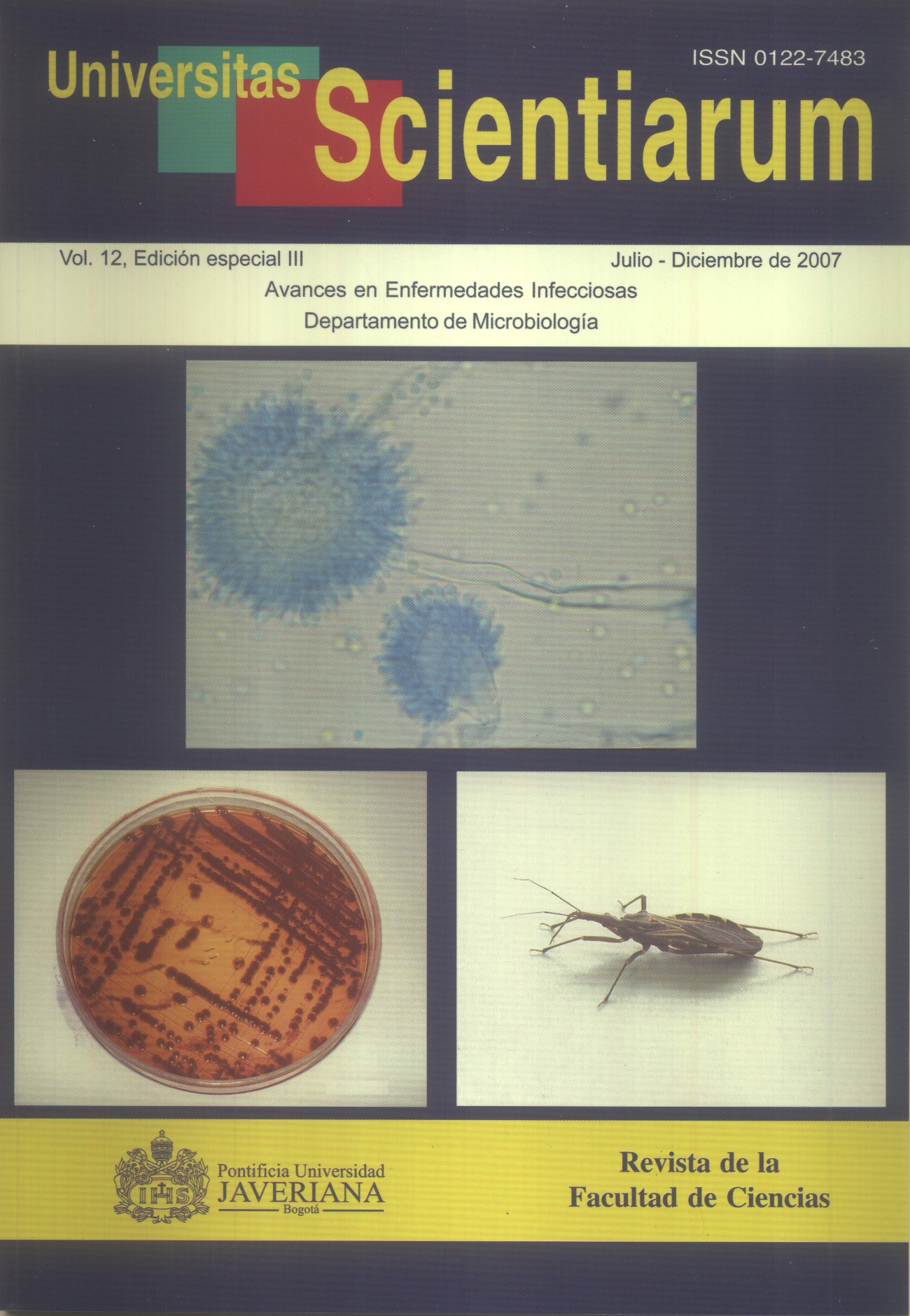Abstract
El orden Kinetoplastida está conformado por un grupo de organismos que se caracterizan por presentar un ADN extranuclear denominado cinetoplasto. Dentro de éste, los tripanosomátidos constituyen una familia de protozoos altamente divergentes que incluye varios géneros de interés médico y económico por ser patógenos de humanos, plantas e insectos. El género Crithidia constituye un grupo de parásitos monogenéticos encontrados en el tracto digestivo de artrópodos e invertebrados. Recientes estudios han mostrado el carácter conservado de la proteína 11 de membrana de kinetoplástidos (KMP-11) y su importancia biológica e inmunológica en el contexto de su asociación con la membrana de tripanosomátidos. En este trabajo se amplificaron y secuenciaron los genes kmp-11 de Crithidia spp. Estos genes tienen un marco de lectura abierto de 279 pb que codifica para una proteína con peso molecular de 11 kDa, la cual presenta una elevada identidad con su ortóloga de otros tripanosomátidos. Análisis filogenéticos basados en la secuencia de nucleótidos sustentan el carácter polifilético del género Crithidia al encontrarse que éste se encuentra más estrechamente relacionado con T. rangeli, T. cruzi y T. brucei que con Leishmania.Univ. Sci. is registered under a Creative Commons Attribution 4.0 International Public License. Thus, this work may be reproduced, distributed, and publicly shared in digital format, as long as the names of the authors and Pontificia Universidad Javeriana are acknowledged. Others are allowed to quote, adapt, transform, auto-archive, republish, and create based on this material, for any purpose (even commercial ones), provided the authorship is duly acknowledged, a link to the original work is provided, and it is specified if changes have been made. Pontificia Universidad Javeriana does not hold the rights of published works and the authors are solely responsible for the contents of their works; they keep the moral, intellectual, privacy, and publicity rights. Approving the intervention of the work (review, copy-editing, translation, layout) and the following outreach, are granted through an use license and not through an assignment of rights. This means the journal and Pontificia Universidad Javeriana cannot be held responsible for any ethical malpractice by the authors. As a consequence of the protection granted by the use license, the journal is not required to publish recantations or modify information already published, unless the errata stems from the editorial management process. Publishing contents in this journal does not generate royalties for contributors.



